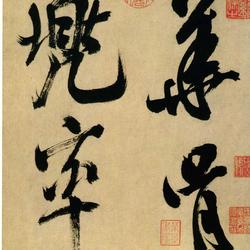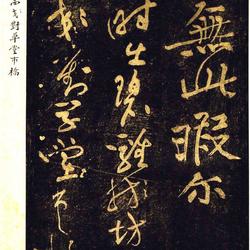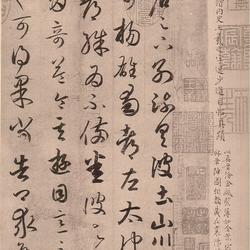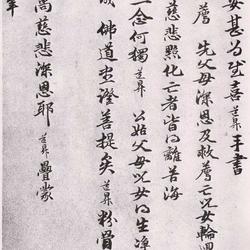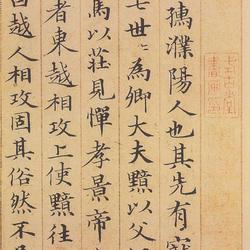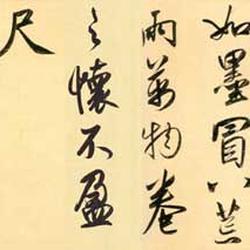"Epitaph of Yuan Xianjun" This epitaph is made of limestone, with a height of 35 cm, a length of 75 cm, and a width of 56.5 cm. The upper part is the epitaph cover, which is engraved with quadrangular, pentagonal and hexagonal tortoise shell patterns with negative lines. In the center of the tortoise shell is the original inscription "Epitaph of Yuanjun, a former scholar of Wei". The main text is engraved below, with nineteen lines and twenty-one characters, a total of three hundred and fifty-seven characters. The top and bottom of Zhi Gai and Zhi Wen are exactly the same, which is a vivid and complete stone turtle, and the head, tail and four legs of the turtle are complete. The epitaph is made into the shape of a turtle, symbolizing longevity, and prays to the tomb owner for eternal life under the nine springs. This shape is the only one seen in epitaphs of the Northern Wei Dynasty, and rarely appears in later generations.
The epitaph was engraved in February of the second year of Yanchang (513). It was unearthed in Luoyang, Henan in the sixth year of the Republic of China (1917). Soon after it was unearthed, it was purchased by Fu Yuanshu (Fu Zengxiang), a scholar of epigraphy. It was first stored in the Capital Museum (formerly the National Peking Museum). After the September 18th Incident, the Nanjing Nationalist Government decided to move the national treasure from the Palace Museum to the south. Yuan Xianjun’s epitaph was also moved with it, and finally settled in the Preparatory Office of the National Central Museum. Now it is collected in Nanjing Museum. The epitaph is exquisitely carved, has a special shape, has gorgeous diction and exquisite calligraphy. Therefore, it was highly valued by epigraphers and calligraphers as soon as it was unearthed. Wu Shijian's "Nine Bells Jingshe Jinshi Postscript" and Zhao Wanli's "Collection and Interpretation of Epitaphs of Han, Wei, Southern and Northern Dynasties" are both recorded. Until now, there are quite a few calligraphers who have studied and adapted this epitaph.
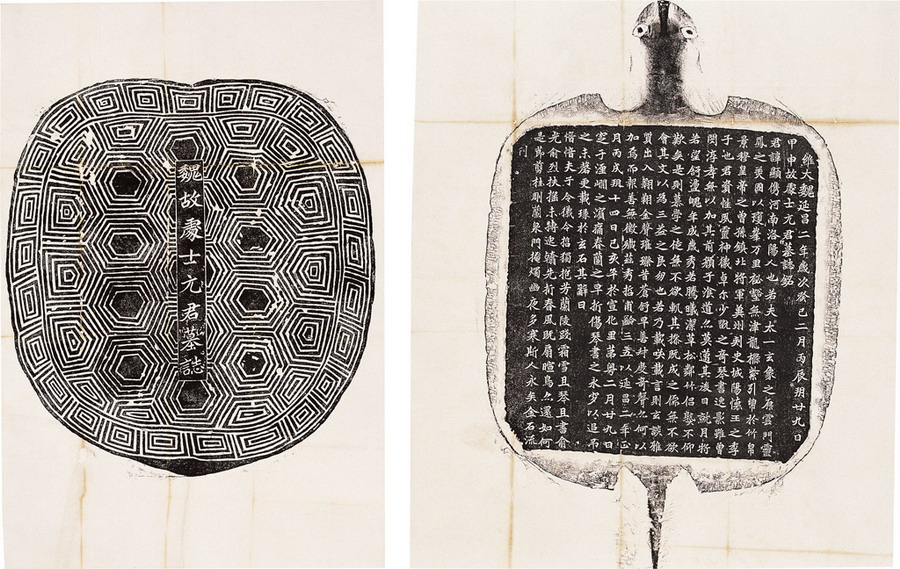
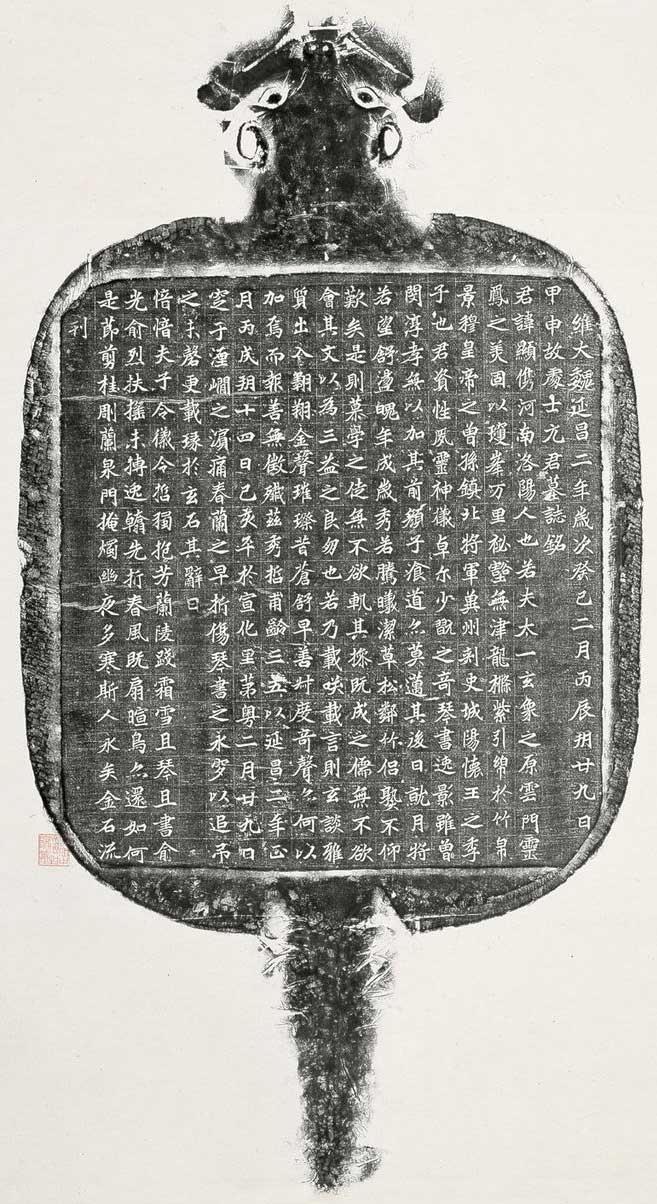
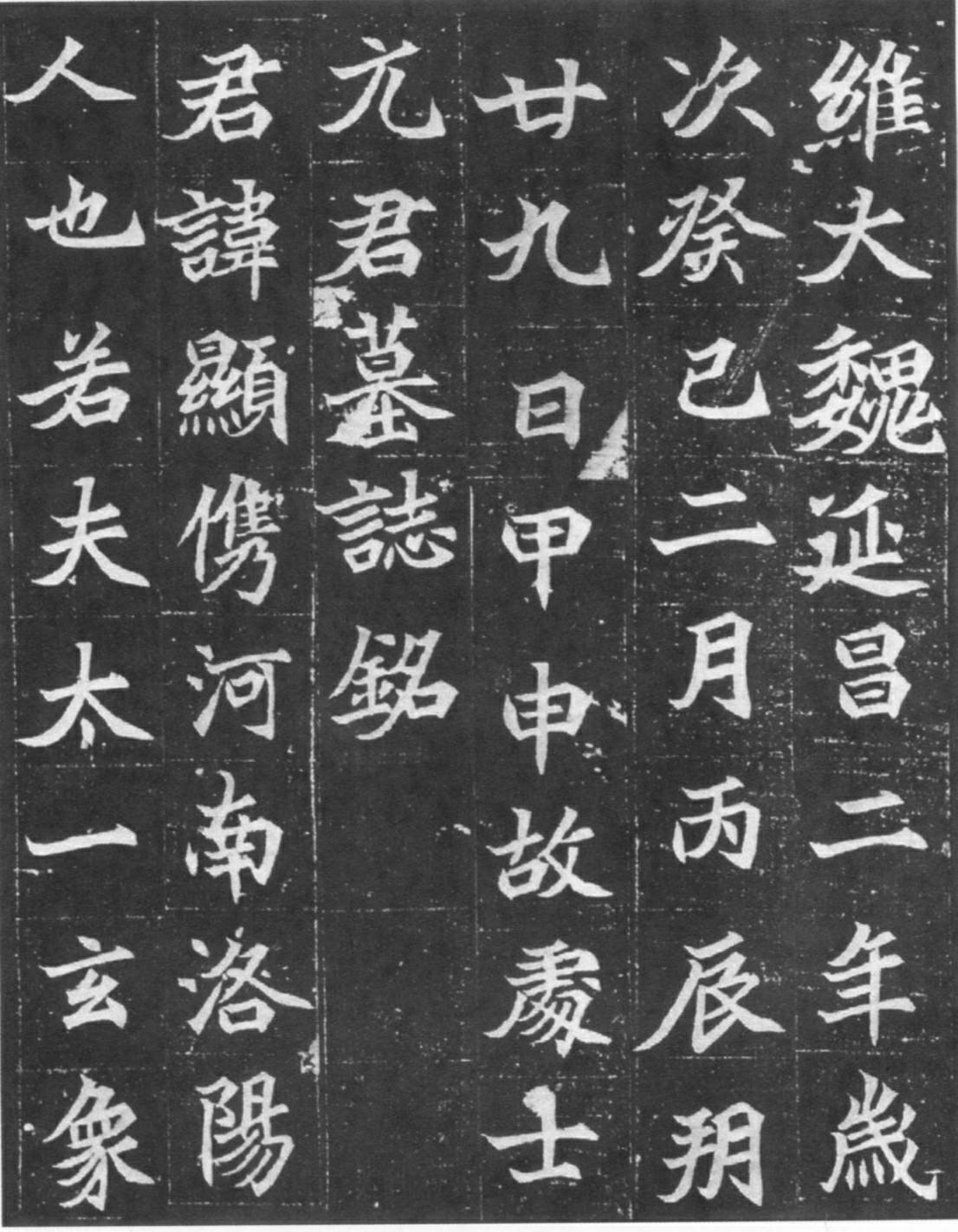
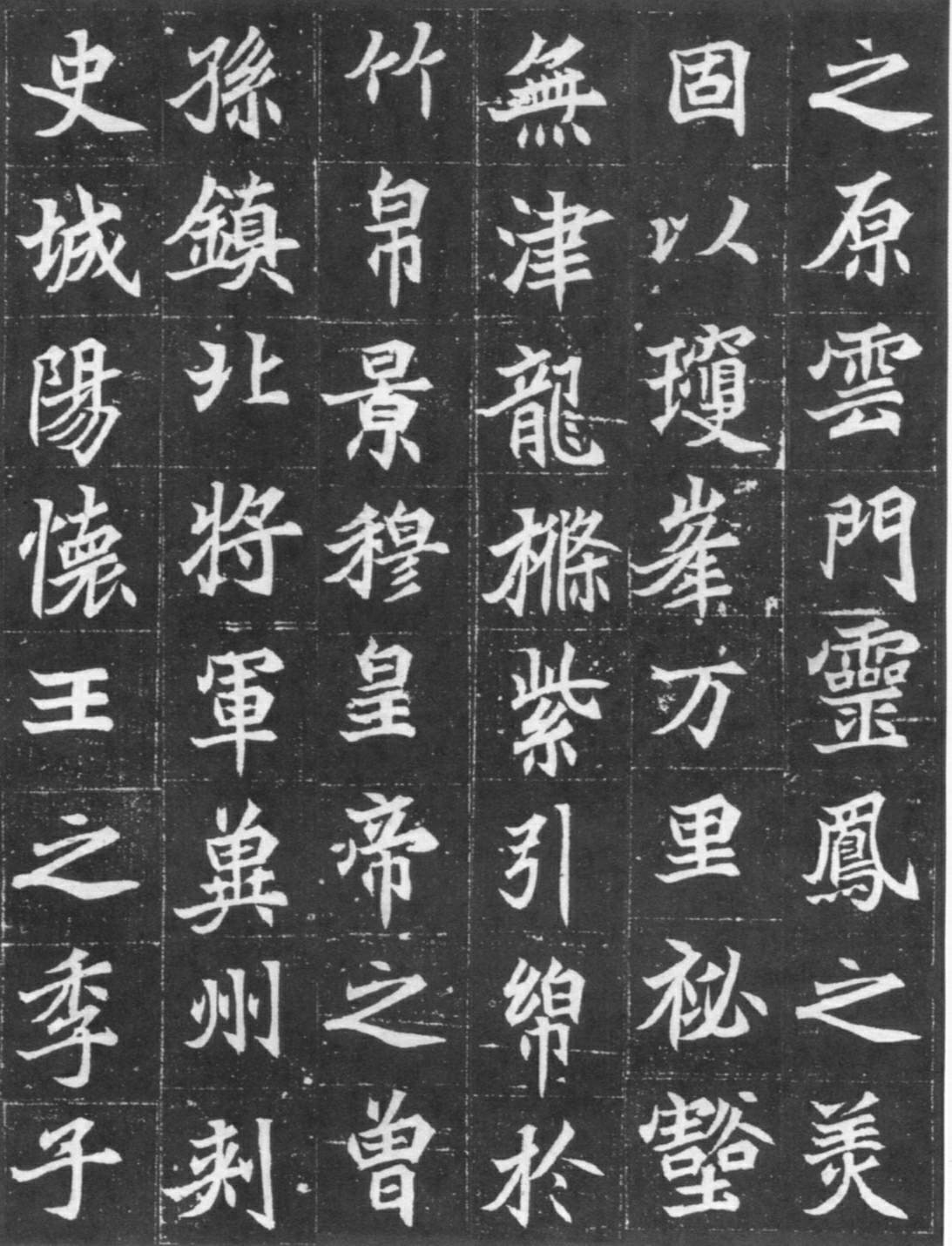
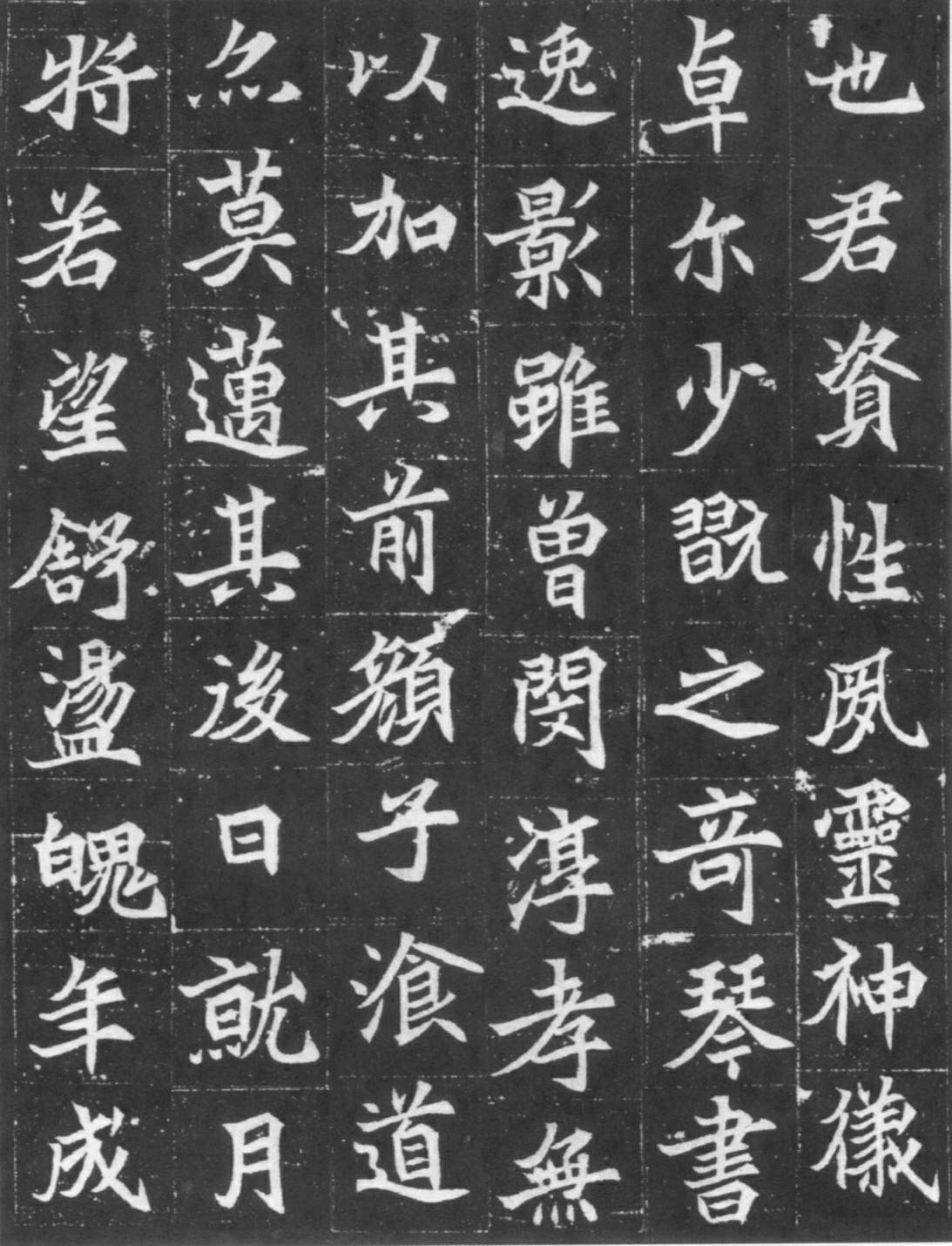
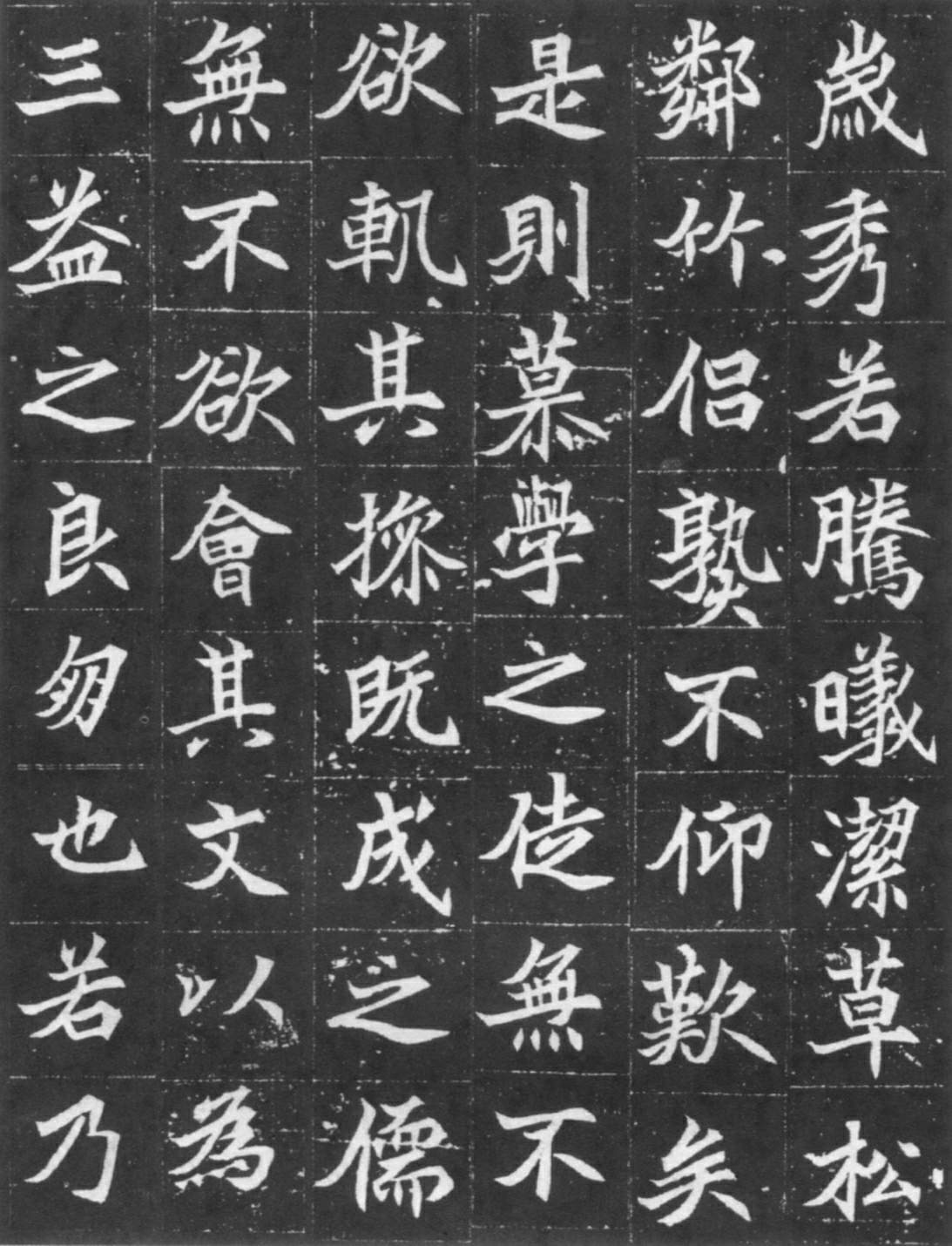
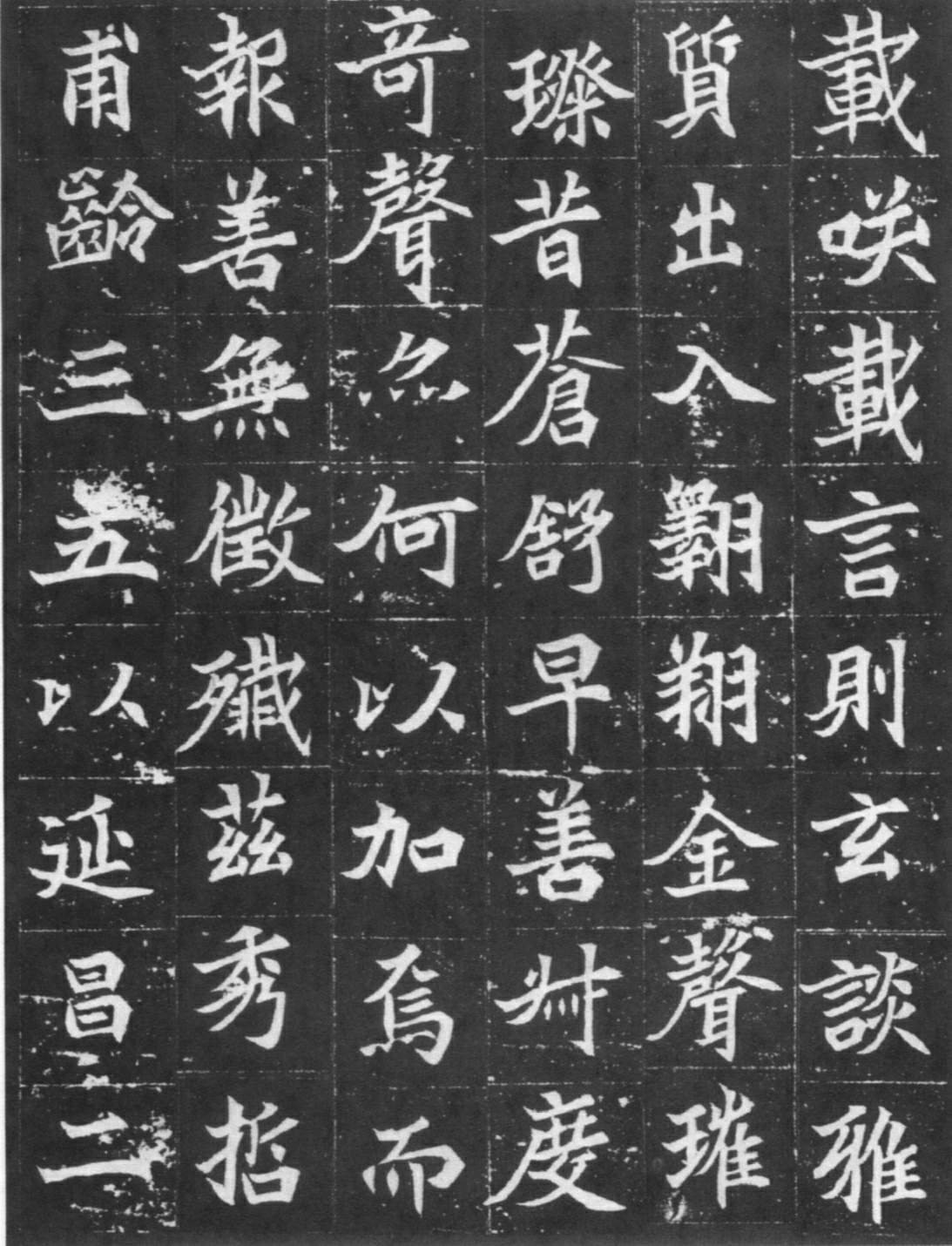
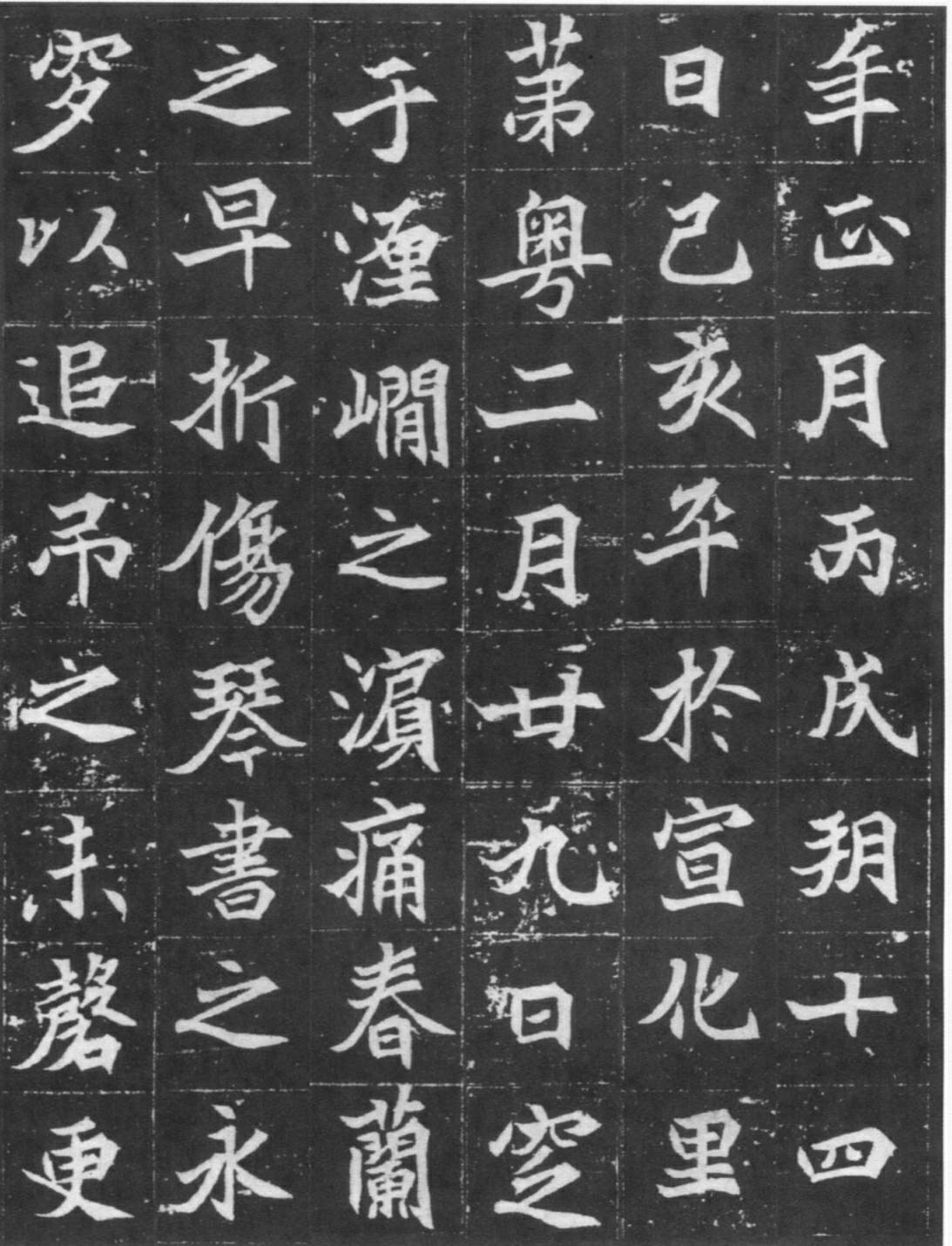
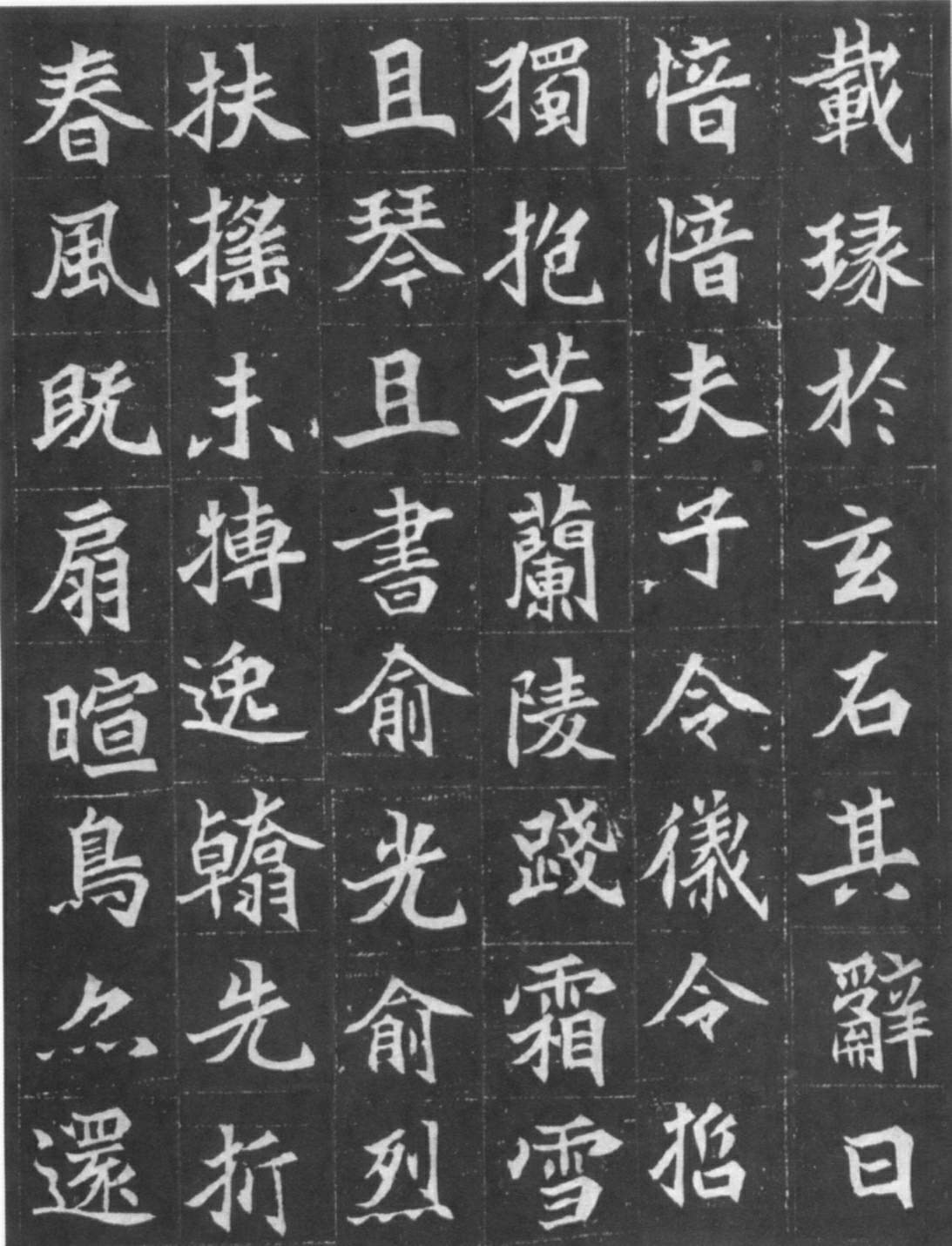
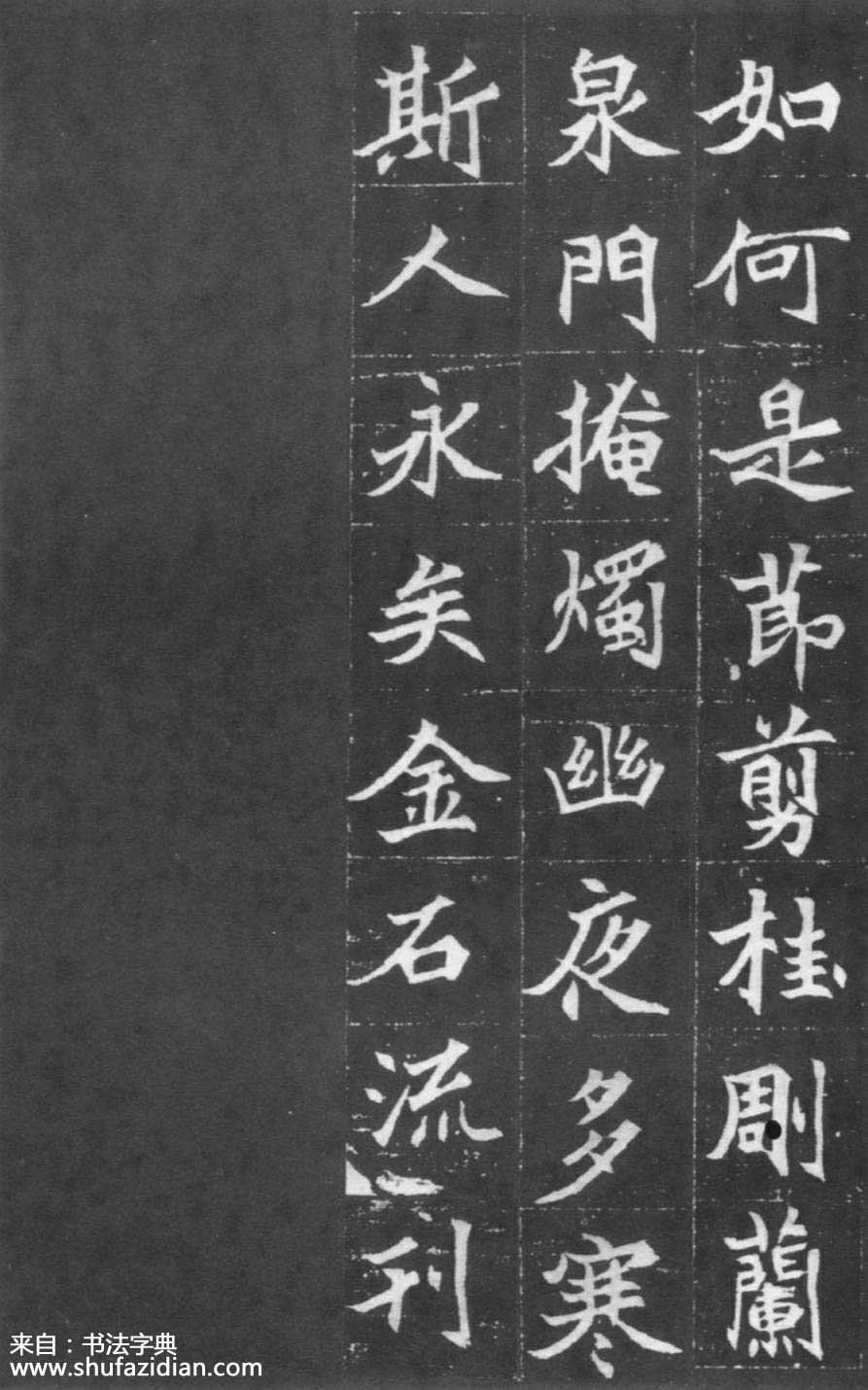
The owner of the tomb is Yuan Xianjun, a native of Luoyang, Henan. He was "the great-grandson of Emperor Jingmu, general Zhenbei, governor of Jizhou, and the youngest son of King Huai of Chengyang." He died in Xuanhualidi on the 14th of the first month of the second year of Yanchang at the age of fifteen. On February 29 of the same year, he wandered on the shore of Xianjian. The Zhiwen adheres to the style of epitaphs from the Han, Wei, Southern and Northern Dynasties, with orderly inscriptions, gorgeous words, and melancholy and harmonious rhymes. "It hurts the early death of Chunlan, and hurts the eternal death of Qin Shu." It expresses the family's infinite grief for this young royal boy who died early. , with strong artistic appeal. Of course, there are many words of praise and praise. Unlike his father, uncle and brothers, there are records in "Book of Wei" and other historical biographies. The title of the epitaph is signed "Chishi" because he has not yet reached the age to inherit the official title and has no official achievements, so he can only be called "Chishi" tentatively, setting a precedent for this title in the epitaph.
The calligraphy of "Yuan Xianjun's Epitaph" is a masterpiece of epitaph calligraphy in the Northern Wei Dynasty. The calligraphy brush used in this book can be used for both sides and sides, and is prepared for both square and round strokes. The structure is generally low on the left and high on the right, dense and dense, graceful and graceful, and full of charm. It has both the flying beauty of calligraphy and the lush and majestic stele study. Among the many epitaphs, they appear graceful and unique. However, because the writing style is mostly sideways and flattering, it feels a bit "showy on the left and dry on the right". Although not as much as the changes in "Cui Jingyong's Epitaph", the whole chain is gratifying.
[Inscription]:
The epitaph of Yuanjun, a former scholar in Jiashen, the second year of Guiji, the second year of Guiji, the second year of Yanchang in the Wei Dynasty, the 29th day of Bingchen and Shuo
Jun Taoxian is handsome, and he is from Luoyang, Henan. Ruofu is the source of the mysterious image of Taiyi, the beauty of Yunmen’s spirit and phoenix. The solid peaks are thousands of miles away, but the secret (gully) has no water. The dragons and tangerines are led by purple trees, and they are woven in bamboos and silks. The great-grandson of Emperor Jingmu and the youngest son of King Huai of Chengyang, the governor of Jizhou, the general in charge of Zhenbei. Your nature is long-lived, your deity is outstanding, and you rarely play with it. Even though Min Chun was filial, he could not go before him; Yan Zi taught the way, but he could not step behind him. The sun is approaching and the moon is about to appear, and the sky is full of joy; the years are beautiful, and the sun is clearing the grass. There are pine trees and bamboo lovers next to each other. When they are familiar with each other, they will not look up and sigh. Therefore, the disciples who admire learning all want to follow his teachings, and the established Confucians all want to learn his literature, thinking that they are good friends of Sanyi. If it contains laughter and words, it will be a mysterious talk of elegance. Soaring in and out, the golden sound is bright. In the past, Cang Shu was good early in the morning, and his uncle made a strange sound, so why should he add it. To repay the good deeds, Ji Xiuzhe died in Xuanhuali on the 14th day of the first month of the second year of Yanchang, Bingxu, at the age of thirty-five. On the twenty-ninth day of the second lunar month in Guangdong, I wandered along the shore of Xianjian. It hurts the early break of Chunlan, and hurts the eternal seal of the piano and calligraphy. It is still hanging after hanging, and it is even carved in black stone. The poem said: Master, you are stunned by your rituals and wisdom. You hold a fragrant orchid alone, and your mausoleum is covered with frost and snow. The piano and the calligraphy were played together, Yu Guang and Yu Lie were playing, but before Fuyao was able to twist it, Yihan folded it first. The spring breeze is blowing, and the birds are returning. What a festival, cutting osmanthus and carving orchids. The spring gate is covered with candles, and the night is cold. This person will live forever, and the gold and stone will be published.

